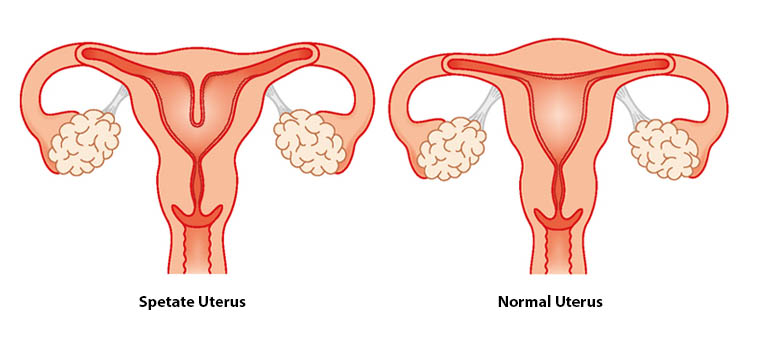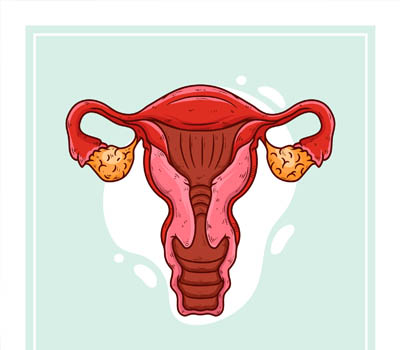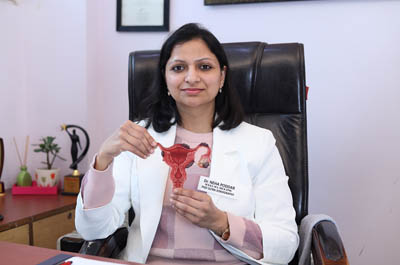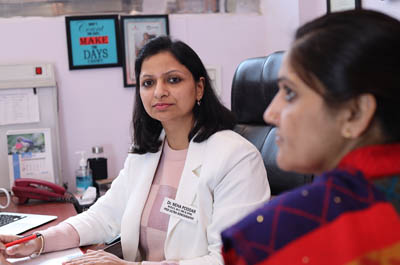
Understanding Septate Uterus: Diagnosis, Treatment Options, and Support at Precision Gynaecology with Dr. Neha Poddar
A septate uterus is a congenital uterine anomaly where a band of tissue partially or completely divides the uterine cavity into two sections. While some women with a septate uterus may not experience any problems, it can sometimes lead to pregnancy complications.
At Precision Gynaecology, Dr. Neha Poddar is dedicated to women's reproductive health and offers expert diagnosis, treatment options, and support for women with a septate uterus.
What is a Septate Uterus?
-
During fetal development, the two halves of the uterus normally fuse together.
-
In a septate uterus, this fusion process is incomplete, resulting in a band of tissue (septum) dividing the uterine cavity partially or completely.
-
The septum can be thin and filmy or thick and muscular. It can extend from the top of the uterus down towards the cervix, sometimes even reaching the cervix and partially blocking the opening.
Causes and Risk Factors:
Septate uterus is a congenital abnormality, meaning it's present at birth. The exact cause is unknown, but it's thought to be related to abnormal development in the womb. There are no known risk factors you can control.

Causes and Risk Factors:
Many women with a septate uterus have no symptoms and may not even be aware of the condition. However, some women may experience:
-
Recurrent pregnancy loss (miscarriage)
-
Preterm birth
-
Difficulty getting pregnant (infertility)
-
Abnormal fetal presentation (breech position)
Diagnosis:
Dr. Poddar can diagnose a septate uterus through various methods, including:
-
Pelvic ultrasound: This can sometimes detect a septate uterus, but may not be definitive.
-
Hysterosalpingography (HSG): An X-ray with dye is used to visualize the uterus and fallopian tubes.
-
Saline infusion sonography (SIS): Sterile saltwater is infused into the uterus to better visualize the uterine cavity.
-
Hysteroscopy: A thin, lighted scope is inserted through the vagina to view the inside of the uterus.
Treatment Options:
If you have a septate uterus and are not experiencing any problems, treatment may not be necessary. However, if you're experiencing pregnancy complications, Dr. Poddar may recommend a surgical procedure called a hysteroscopic septal resection. This minimally invasive procedure removes the septum, creating a single uterine cavity.
Benefits of Treatment:
Removing the septum may improve pregnancy outcomes and reduce the risk of miscarriage and preterm birth. However, Dr. Poddar will discuss the potential risks and benefits of surgery with you in detail.


Support and Next Steps:
If you're diagnosed with a septate uterus, Dr. Poddar understands you may have questions and concerns. At Precision Gynaecology, she offers a supportive environment and will discuss all your treatment options. Together, you can decide on the best course of action for your individual situation.
Remember, a septate uterus doesn't necessarily prevent pregnancy. Many women with septate uterus have healthy pregnancies. However, if you're concerned about your fertility or experiencing pregnancy complications, Dr. Neha Poddar at Precision Gynaecology can help. Schedule an appointment to discuss your concerns and explore your options.
FAQS
A septate uterus, also known as a uterine septum, is a congenital condition where the uterus is divided by a wall or septum, creating a partial or complete separation of the uterine cavity. This septum can vary in thickness and may extend partially or fully from the top to the bottom of the uterus. Septate uterus can increase the risk of infertility, recurrent miscarriages, and pregnancy complications. Dr. Neha Poddar at Precision Gynaecology specializes in diagnosing and managing septate uterus to optimize reproductive outcomes for women.
A septate uterus occurs during fetal development when the septum fails to dissolve completely, resulting in a division of the uterine cavity. The exact cause of this developmental anomaly is not always clear, but it is believed to be related to genetic factors or exposure to certain environmental influences. Dr. Neha Poddar can conduct thorough evaluations to diagnose septate uterus and discuss appropriate treatment options at Precision Gynaecology.
Many women with a septate uterus may not experience any symptoms, especially if the condition does not affect reproductive function. However, some women may experience infertility, recurrent miscarriages, or pregnancy complications such as preterm labor or breech presentation. In some cases, women may also have abnormal menstrual bleeding or pelvic pain. If you suspect you may have a septate uterus or are experiencing fertility issues, it's important to consult with Dr. Neha Poddar for evaluation and management at Precision Gynaecology.
Treatment for a septate uterus depends on various factors such as the extent of the septum, reproductive goals, and associated symptoms. In many cases, surgical intervention such as hysteroscopic septum resection may be recommended to remove the septum and restore the normal uterine anatomy. This procedure can improve reproductive outcomes and reduce the risk of pregnancy complications. Dr. Neha Poddar provides personalized treatment plans tailored to each patient's needs and goals at Precision Gynaecology.
- General Gynae
- Menstrual Disorders
- Vaginal discharge
- Cervical Cancer - Screening & Vaccination
- Pelvic inflammatory disease (PID)
- Infertility treatment (IVF & IUI)
- Uterine polyps
- Septate Uterus (Uterine Septum)
- Uterine Fibroids
- Ovarian Cysts
- Dermoid Cysts
- Ectopic Pregnancy
- Endometriosis
- Menopause
- Hormonal Disorders
- PCOS and Hyperprolactinemia
- Gynae Endoscopy
- Uro Gynae
Are you seeking a qualified and experienced gynecologist and obstetrician in Ghaziabad? Look no further than Dr. Neha Poddar!
- Call 9318413696, 9958170476
- Whatsapp 9318413696

Doctors
-

Dr. Madhu Poddar
-

Dr. R.K. Poddar
-

Dr. Neha Poddar
-

Dr. Rahul Poddar